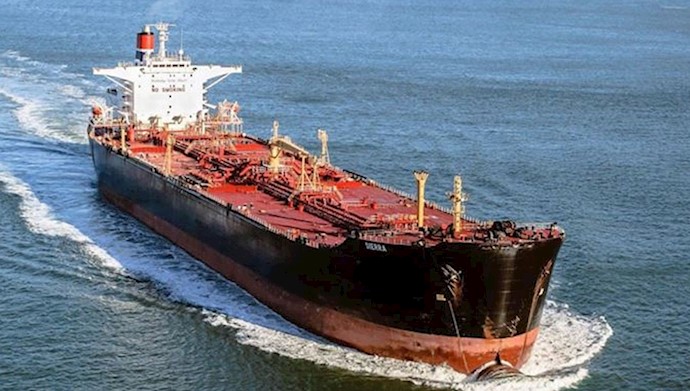Analysis by PMOI/MEK
Iran, July 7, 2019 – In late April, Iranian regime President Hassan Rouhani stated that there are six ways for circumventing U.S. oil sanctions which are completely unknown to the Americans.
A month later in a meeting with journalists, Rouhani claimed the “impact of sanctions is insignificant,” and the Iranian government will be “able to decrease the impact of sanctions and lessen the people’s problems with their livelihoods.”
During his recent visit to New York, mullahs’ Foreign Minister Mohammad Javad Zarif also boasted that Tehran has a Ph.D. in circumventing sanctions!
In July 2017, far before Rouhani and Zarif, the regime’s Majlis (parliament) Ali Larijani attempted to play down the potential consequences of the impending sanctions. “Let’s not create unreasonable panic. This isn’t a catastrophic event. The U.S. has violated [the terms of the deal], but I don’t think that it will have much of an impact on Iran,” he said.
According to Reuters, the Iranian regime is currently exporting about 300,000 barrels per day, down from around one million two months ago when the U.S. stopped extending oil sanction waivers.
While 300K b.p.d. is minuscule compared to Iran’s usual levels of exports, smuggling that amount of oil is also becoming increasingly difficult.
On July 4, Gibraltar officials seized an Iranian oil tanker destined for the Baniyas port in Syria violating European Union sanctions.
Josep Borrell, Spain’s acting foreign minister, said that seizing the Iranian tanker was carried out following an American request to the United Kingdom.
British Prime Minister Theresa May’s spokesperson welcomed the decisive action by Gibraltar officials.
While reiterating that seizing the tanker “sends a clear message that sanctions violation are unacceptable,” May’s spokesperson said: “We welcome this firm action to enforce EU sanctions against the Syrian regime and commend those Gibraltarian authorities involved in successfully carrying out this morning’s operation.”
On June 19, The Wall Street Journal reported how Iranian oil claiming to be originating from Iraq was rejected by the buying company. The shipment was destined for Sicily in Italy. While the paperwork for the shipment was Iraqi, the oil was definitely of Iranian origin.
Back in 2017, Iran’s state-run Resalat newspaper published an article describing the Iranian regime’s dependency on oil. “Friend and foe know well that our government doesn’t live by its work and income but by selling its capital,” the piece reads in part.
“Crude oil is our national wealth. Selling crude oil and importing goods, concentrating 80 percent of the country’s economy in the government, and the private sector’s bankruptcy is a gradual death and not the state of being alive,” the newspaper further wrote.
With the oil sanctions applied stringently, analysts believe that Tehran will face more domestic discontent amid a crumbling economy and has to eventually choose one of two paths which both lead to the same end:
1- Forgo all its nuclear and ballistic missile ambitions, cease to meddle in the Middle East and around the world. This will act as a toxic poison throughout the regime’s entire power structure and philosophy, with the inevitable demise of the ruling theocracy.
2- Insisting on the current path of death and destruction, which will lead to further isolation and an eventual confrontation with the international community with the inevitable demise at the end.
That is the dead-end that Iran’s regime faces right now and that is why the mullahs are desperately attempting to buy time without choosing a definite path.





